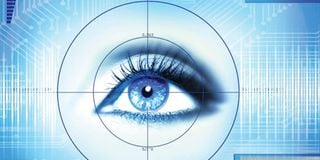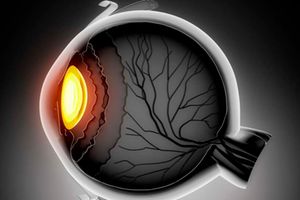How to prevent and treat swollen eyelids

Avoid using harsh facial scrubs or cosmetics that can irritate the eyes.
What you need to know:
- Eyelid swelling is the process of excess fluid building up in the tissues around your eyes.
- The eyelids are particularly susceptible to swelling because the skin is thin, and there are many blood vessels close to the surface.
- Exposure to allergens such as dust, pollen, or chemicals can cause your eyes to become red and swollen.
It can be alarming when you notice that one or both of your eyelids are swollen. The swelling could cause discomfort and interfere with vision. There are many possible causes for this condition such as allergies, eye strain, infections, and facial injuries or trauma. Eyelid swelling may also be associated with other medical conditions such as thyroid diseases.
What is eyelid swelling?
Eyelid swelling is the process of excess fluid building up in the tissues around your eyes. The eyelids are particularly susceptible to swelling because the skin is thin, and there are many blood vessels close to the surface. Swelling can affect either the upper or lower eyelids or both.
What causes eyelid swelling?
Allergies: Exposure to allergens such as dust, pollen, or chemicals can cause your eyes to become red and swollen.
Eye strain: If you spend too much time in front of the computer screen without taking regular breaks, it may lead to eye strain, resulting in eyelid swelling.
Infections: Such as conjunctivitis and styes can cause eyelids to become swollen and inflamed.
Facial injuries or trauma: Blunt force trauma to the face, such as a punch in the eye, can cause swelling and bruising of the eyelids.
Medical conditions: Certain medical conditions such as thyroid diseases, lupus, and rheumatoid arthritis can result in eyelid swelling.
Crying: Tears can cause eyelids to swell.
A surgery or procedure: Specific surgical procedures, such as a facelift, can cause temporary swelling of the eyelids.
What are the symptoms of eyelid swelling?
The most common symptoms of eyelid swelling include:
- Redness and inflammation of the skin around the eyes
- Discomfort or pain in the eyes
- A feeling of a foreign body in the eye
- Itchy eyes and eyelids
- Blurred vision due to excess fluid or swelling on the surface of your eye
- Increased tearing as a result of inflammation around your eyes.
Treating eyelid swelling
In most cases, mild forms of eyelid swelling can be treated at home. However, it is important to rule out severe cases and seek medical advice if you have persistent symptoms.
- If your eyelid swelling appears after a face injury or trauma, apply an ice pack wrapped in a cloth on the affected area for 15 minutes every hour until the swelling subsides.
- Apply a cold compress (such as an ice pack) or damp tea bag to the eyes to relieve swelling and inflammation.
- Use over-the-counter antihistamine medications in case of an allergen-related swelling.
- If you are experiencing eye strain, take regular breaks from the computer screen and relax your eyes by looking away for a few seconds every few minutes.
- Apply warm compresses to the eyelids if they are itchy and swollen due to conjunctivitis. After the compress, gently clean the eyelids with lukewarm water and apply antibiotic ointment if you have styes. Avoid rubbing the eyes as this can aggravate the condition.
- If your eyelid swelling is associated with another medical condition such as thyroid disease, lupus, or rheumatoid arthritis, you should consult your doctor for treatment options.
How can I prevent eyelid swelling?
- Reduce your exposure to allergens such as pollen and dust that can cause the eyes and eyelids to become irritated and swollen. You may also want to switch up any skincare products, makeup, or perfume in case they are causing an allergic reaction.
- Remove contact lenses before going to bed
- If you are a smoker, quit smoking because it increases your risk of developing various eye diseases, including eyelid swelling.
- Practice good hygiene and keep your eyelids clean by gently washing them with lukewarm water twice a day using a mild soap.
- Avoid using harsh facial scrubs or cosmetics that can irritate the eyes.
- Wear sunglasses outdoors to protect your eyes from the sun's UV rays, which aggravate eyelid swelling.




